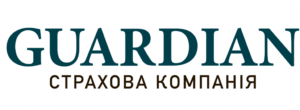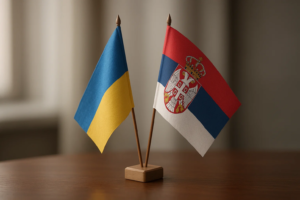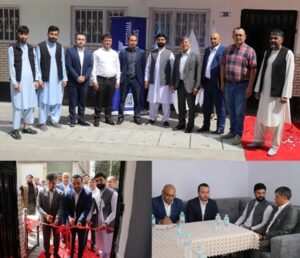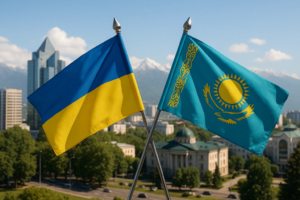
PJSC Ukrgazvydobuvannya (Kyiv) has announced its intention to conclude a contract with Guardian Insurance Company for compulsory civil liability insurance for owners of land vehicles (OSAGO). According to the Prozorro electronic public procurement system, the expected cost of the services was UAH 3.131 million, and the company’s price offer was UAH 2.868 million.
Insurance company Kraina also participated in the tender with an offer of UAH 2.946 million.
Guardian Insurance Company was also the winner of a similar tender a year earlier.

Most Ukrainians take a neutral stance toward Serbia, but among those who expressed a clear opinion, negative assessments outweigh positive ones. This is evidenced by the results of a survey conducted by Active Group in cooperation with the Experts Club think tank.
According to the study, 58.0% of respondents said they had a neutral attitude toward Serbia. At the same time, 26.0% of Ukrainians expressed a negative attitude (4.7% — completely negative, 21.3% — mostly negative). Only 13.7% of respondents gave positive assessments (2.3% — completely positive, 11.3% — mostly positive). Another 2.3% said they were not familiar with the country.
“Serbia remains a country with an ambiguous image for Ukrainians. Despite historical and cultural ties, Belgrade’s political positions shape a predominantly negative attitude among part of Ukrainian society,” said Alexander Pozniy, head of Active Group.

Maksym Urakyn, founder of Experts Club, emphasized that trade and economic relations between Ukraine and Serbia are developing at a moderate pace.
“In January-August 2025, trade turnover between the countries amounted to $220.6 million. At the same time, exports from Ukraine to Serbia amounted to $85.1 million, and imports from Serbia amounted to $135.5 million. The negative balance for Ukraine is $50.4 million. This small trade balance is quite insignificant and does not reflect the potential of the countries.”
Thus, although most Ukrainians do not have a clear position on Serbia, the balance of assessments is rather negative.
The full video can be viewed at the link:
You can subscribe to the Experts Club YouTube channel here:
ACTIVE GROUP, EXPERTS CLUB, Pozniy, SERBIA, SOCIOLOGY, TRADE, UKRAINE, URACIN

Agricultural production in Ukraine in January-August 2025 decreased by 8.4% compared to January-August 2024, according to the State Statistics Service (SSS).
According to its data, during the reporting period, livestock production decreased by 9.7%, and animal husbandry by 4.9% compared to the same period in 2024.
At the same time, enterprises reduced production rates more actively than households – by 9.6% and 6.3%, respectively.
In January-August of this year, enterprises reduced crop production by 12.2% and livestock production by 2.4%, while households saw a 5.3% drop in crop production and an 8.6% drop in livestock production compared to the same period in 2024.
A significant drop in production was recorded in the Donetsk region, where production volume is only 53.6% of last year’s figure. A relatively significant decline was also recorded in the Kherson (72.2%), Dnipropetrovsk (78.5%), and Poltava (79.0%) regions.
At the same time, some regions are showing positive dynamics. Thus, production grew the most in Lviv region – up to 102% – and in Ivano-Frankivsk region – up to 100.6%.

Experts Club has released a video analysis dedicated to the dynamics of gold production in the world by leading countries. Over the past half-century, the structure of global gold production has changed significantly: while South Africa and the USSR were the leaders in the 1970s, by the 2020s, China, Australia, and Russia had taken the lead.
China is now the largest gold producer in the world, having led the field by a significant margin for almost 20 years. Russia is in second place, Australia in third.
Further down the top ten are Canada, the US, Ghana, Mexico, Indonesia, Peru, and Uzbekistan.
In the 1970s and 1990s, South Africa dominated, accounting for up to two-thirds of global gold production. The gradual depletion of deposits and rising costs led to a decline in its share. South Africa has now fallen out of the top ten countries in terms of gold production.
In the 1990s, Russia took the lead, and in the last two decades, there has been significant growth in gold production in Australia, Canada, and African countries (Ghana, Mali).
Total global gold production has more than doubled since 1975, exceeding 3,600 tons per year by 2023–2024.
Since the early 2020s, gold has been steadily updating its historical highs amid geopolitical instability and inflationary risks. As of September 2025, the price of gold reached about $3,710-$3,730/ounce. This rapid rise in price is supported by increased demand from central banks, investment flows into ETFs, and expectations of lower interest rates in the US.
For more details on the struggle between countries for global leadership in gold production, see the video from Experts Club – https://www.youtube.com/shorts/DWbzJ1e2tJc
“Gold is not only used in the jewelry industry and finance, but also in electronics (coating contacts and connectors, where high conductivity and corrosion resistance are important), modern computers and smartphones are impossible without the use of gold. Gold is used in aviation and space technology, medicine, and lasers. Gold is also used as a catalyst in chemical reactions (for example, in the production of certain types of fuel),” commented Maxim Urakin, candidate of economic sciences and co-founder of the Experts Club information and analytical center, in the video.
The rise in prices confirms the importance of gold as a “safe haven” in times of global turbulence.

In Kabul, Uzbekistan and Afghanistan have established a joint venture for freight transportation—Sogdiana Trans LLC.
Sogdiana Trans LLC was founded by O‘zbekiston temir yo‘llari JSC and specializes in freight transportation, management, and technical maintenance of the Khairaton–Mazar-i-Sharif–Noibabad railway line.
At the opening ceremony of the joint venture, Hamid Khan, head of Khan Daqiq Trading, said that the company has the capacity to transport 150,000 tons of products per year by road along the Kabul–Mazar-i-Sharif –
Kabul, as well as from Mazar-i-Sharif by rail to Uzbekistan, Kazakhstan, the Baltic countries, and others, and to import products from there.
During the event, the head of the logistics and marketing department of Sogdiana Trans LLC expressed his gratitude to the President of Uzbekistan Shavkat Mirziyoyev and the management of O‘zbekiston temir yo‘llari JSC for the opportunities created for entrepreneurs in the Year of Environmental Protection and Green Economy.
AFGHANISTAN, CARGO, joint venture, TRANSPORTATION, UZBEKISTAN

Почти половина украинцев выражает положительное отношение к Казахстану, тогда как отрицательные оценки остаются относительно немногочисленными. Об этом свидетельствуют результаты опроса, проведенного компанией Active Group совместно с аналитическим центром Experts Club.
Согласно исследованию, 42,7% респондентов имеют положительное отношение к Казахстану (8,7% — полностью положительное, 34,0% — в основном положительное). При этом 48,7% заняли нейтральную позицию. Негативно высказались только 8,0% опрошенных (1,7% — полностью негативно, 6,3% — в основном негативно). Только 0,7% отметили, что не знакомы с этой страной.

«Казахстан для украинцев является партнером в постсоветском пространстве, который воспринимается скорее нейтрально или умеренно положительно. Существенного негатива в отношении населения нет», — прокомментировал результаты исследования руководитель компании Active Group Александр Позний.
Экономические показатели подтверждают взаимовыгодность сотрудничества. Как подчеркнул соучредитель Experts Club Максим Уракин, в январе-августе 2025 года товарооборот между Украиной и Казахстаном составил 202,0 млн долларов США.
«Украинский экспорт в Казахстан достиг 157,8 млн долларов, тогда как импорт — 44,2 млн долларов. Положительное сальдо для Украины составляет более 113,5 млн долларов, что свидетельствует о чрезвычайно выгодном балансе в двусторонней торговле», — подчеркнул эксперт.
Таким образом, Казахстан воспринимается украинцами как страна с относительно положительным имиджем и важным торговым партнером Украины.
Полное видео можно посмотреть по ссылке:
Подписаться на YouTube-канал Experts Club можно здесь:
ACTIVE GROUP, EXPERTS CLUB, КАЗАХСТАН, Позний, СОЦИОЛОГИЯ, ТОРГОВЛЯ, УКРАИНА